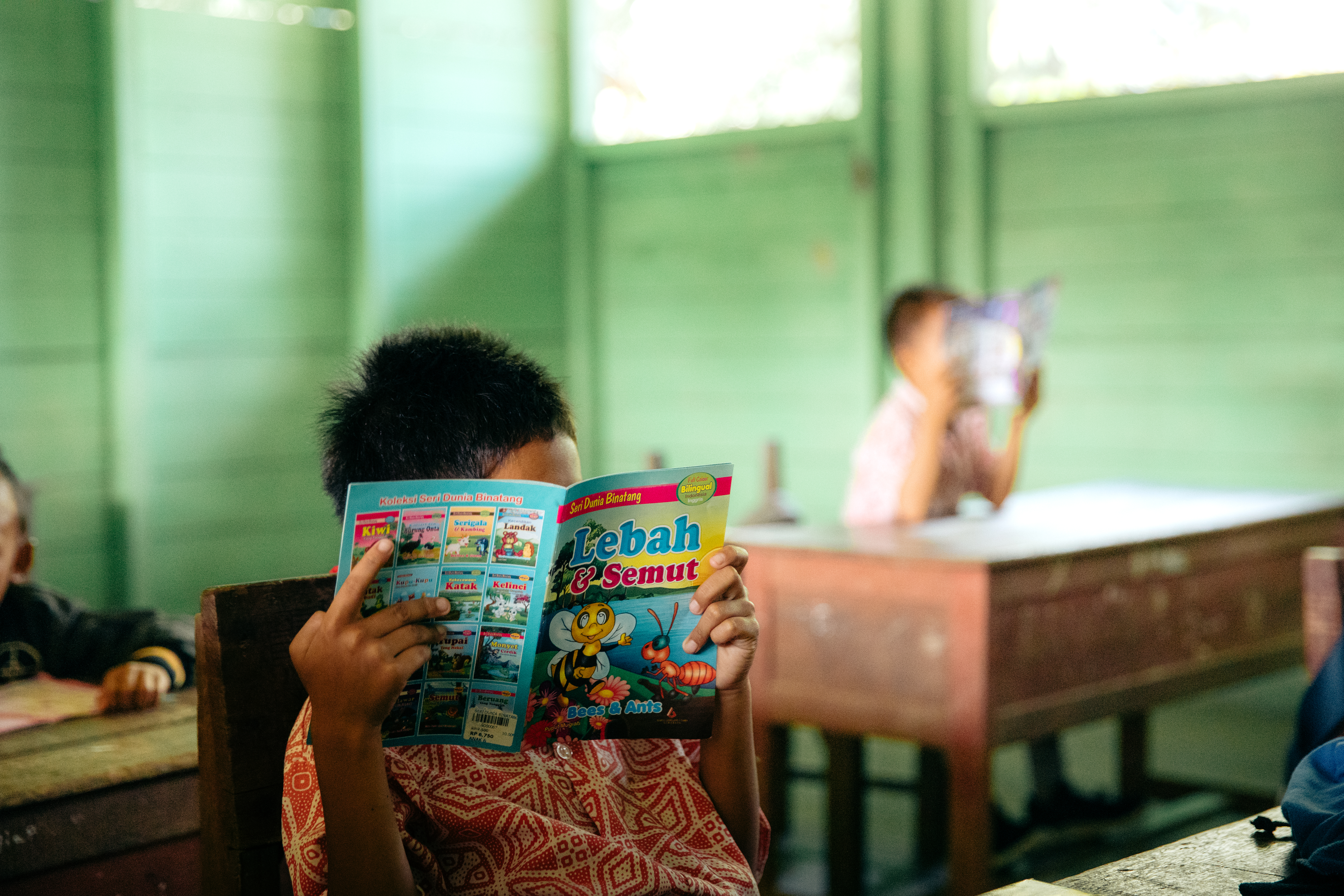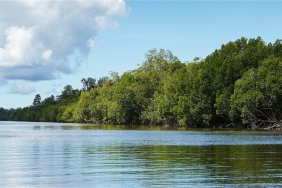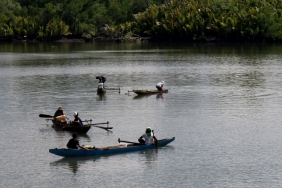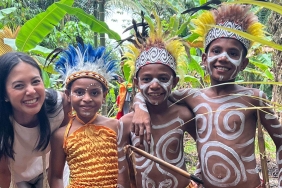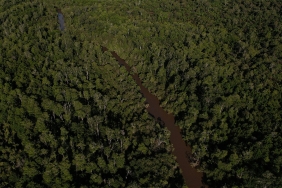AMONG SAGO, SALTED FISH AND SCHOOLS.
By Feronika Manohas, WWF-Indonesia staff working in the Cenderawasih Bay National Park area, West Papua. She works as a community outreach staff for empowerment and education. Contact fmanohas@wwf.or.id
"Is it important to go to school if there is nothing to eat in the cauldron?" asked a father at the window of his house when asked why his third daughter was no longer continuing her education at junior high school (SMP). The daughter just looked down behind a regretful smile as to why it had to be "her" who was chosen not to continue her schooling when her two older siblings could enjoy higher education on the other side of the island.
Foto: illustration by Aulia Rahman
Call Ansamina her name, after being asked again it turns out that Ansamina is the third child of seven siblings, whether this is a misfortune or indeed her destiny must help her parents take care of her younger siblings, some of whom are still in elementary school (SD) and some are still toddlers. "Kaka... my father told me not to go to school because my mother was sick and there was no one to help me look after my siblings!" (Brother, my father told me not to go to school because my mother was sick and there was no one to help me look after my siblings - ed). Ansamina could only surrender to the circumstances she was obviously facing.
Ansamina's family only relies on selling fish and taking sago as daily food which is partly sold to pay for her two siblings who are studying at Wasior High School, Teluk Wondama Regency.
Photo: Illustration by Aulia Rahman
School fees in the city today are not cheap for a student who comes from a fisherman family while they have to live far from their parents so that the cost of food at home is divided. In the city they have to eat rice (the cheapest rice price is Rp.10,000/kg) not to mention the side dishes that must be bought, school uniforms, notebooks, stationery, sports clothes, shoes, and various kinds of urgent needs that sometimes make the "headache" of the parents of fishermen and sago gatherers.
Selina, a child of parents whose only hope is to set snares in the forest, is another story. "Kaka, bapa tra had enough money so sa' tra could enroll in high school in Wasior," Selina said when asked why she didn't go to school when she graduated from junior high school in Yeretuar.
Why is this happening? Are the seas and forests no longer able to provide for their people? Or maybe schooling was cheap and not that important, so there was less need for money and the seas and forests were always enough for everyone?
The reality is that now every fisherman who capitalizes on rowboats and hooks can only sweep his chest and scream in his heart when his catch is exchanged for money at the fish collectors in his village, as if he wants to rebel, can't the fish they bring be more expensive. It's been a day of fishermen rowing under the heat and armed with "Sinole" (local food - ed) starting from the sun has not appeared until the sun is no longer shining they continue to look for fish but only Rp. 50,000, - what nature can give them?. Not to mention buying rice for the toddler, kerosene for the lamp, and sugar and coffee at least for their breakfast in the morning before fighting the sea again. How can it be enough for the eldest child who goes to school in the city?. A million questions rang in her mind, what else should they do? While everything there is very expensive. Should they go further out to fish or what other jobs can they do now that they have "no diploma" so that they can send their children to school?"
In the past, they did not need to go to school to live, just the knowledge of fishing and setting snares that their parents taught them, was enough to keep them alive at that time. All they had to do was eat fish and roasted sago.
In the past, the fish and animals in the forest were plentiful enough for them to eat and feast on, but now why is everything gone? Where did all those big fish go? Is it because there are boats with nets and compressors coming in that the tame fish are leaving?. Is it because there are now people hunting with rifles that the deer and pigs in the forest are diminishing?"
Life is hard now, fishermen can no longer rely on the sea and hunters can no longer rely on the forest for their game. Life is hard now.
Many children who should be in primary school (currently free of charge) follow their parents for weeks at a time on the outer islands to work or at least look after their younger siblings while their fathers fish and their mothers gather sago for the next month's food. "We're only taking him for one week and then he'll go to school next week!" the mother excuses to his class teacher.
"Nowadays, fortunately, there are road, drainage, and school construction activities, as well as people's houses, so we can work as laborers on the projects and then earn a little money for the children to go to school in the city!" said Pak Amos from Goni. But how long will these development projects be able to pay them?"
Sometimes the child has to drop out of school and return to the village to become a fisherman like his parents because he is no longer able to fight life in the city, "I'm already in the seventh semester at the University of Manado majoring in English, sa'trying to survive but I can't because my parents can't send money anymore for six months for me, I'm forced to sa'this way already." lamented Mr. Frans Marani from Goni village.
School is no longer important if the stomach cannot be filled with its needs. The sea belongs to those who have big capital and the forest is only a witness to human incompetence in it.
Humans are getting greedy as everything is getting squeezed! Fishermen are haunted by the fear of not getting fish so all means and efforts are made to get fish easily and a lot even though it is destructive and does not guarantee their future.
Forests are encroached upon not to set hunting traps but to extract trees that can later make a lot of money at the time, one hectare, two hectares, three hectares until there are no more "money trees" left.
Lucky for those parents who have customary rights (ownership of an area) can enjoy the money at that time to be taken or by renting the land to others, but for those who do not have rights to land or sea can only be silent and hope that there is a little piece left for him. There is no money tree left.
Life is getting harder, is it sago, salted fish, or school that counts?"
Notes:
Sinole = Sago food cooked with grated young coconut.
Snare = A trap usually made of bamboo or rope to catch pigs, deer, cuscus, or moles.

